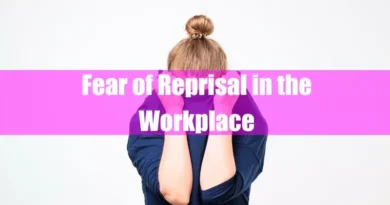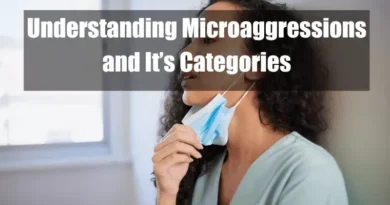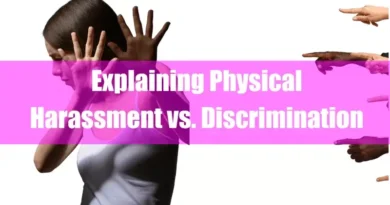Understanding Microinvalidations
Takeaways
| Key Points |
|---|
| Microinvalidations are subtle remarks or actions that dismiss or negate someone’s thoughts, emotions, or experiences, often without the speaker realizing it. |
| These comments or behaviors might seem insignificant on the surface but can deeply affect the person receiving them, especially if they belong to a marginalized group. |
| For example, saying “I don’t see color” or dismissing someone’s feelings about discrimination are common microinvalidations. |
| These experiences can lead to feelings of frustration, self-doubt, and isolation, impacting mental health over time by creating stress, anxiety, or depression. |
What Are Microinvalidations?
Microinvalidations are a form of microaggression that dismisses or undermines the experiences, emotions, or perspectives of marginalized groups, often people of color (POCs). Coined by Dr. Derald W. Sue, microinvalidations subtly negate a person’s lived experience, often leaving the recipient feeling confused, frustrated, or devalued. These slights or comments may seem minor or unintentional, but they can cause significant harm over time by contributing to feelings of invisibility and self-doubt.
The Role of Microinvalidations in Everyday Interactions
Microinvalidations occur in daily interactions and are particularly insidious because they are often disguised as harmless remarks or even compliments. For instance, when someone says to an Asian American, “Your English is so good,” they imply that the person is an outsider or foreigner despite possibly being born and raised in the U.S. This specific type of microinvalidation suggests that a person of non-European descent cannot be a “real” American, perpetuating stereotypes that people of color are perpetual foreigners in their own country.
Four Main Types of Microinvalidations
Dr. Sue has identified four types of microinvalidations that commonly impact people of color and other marginalized groups:
- Alien in Your Own Land: This microinvalidation occurs when people assume someone who looks or sounds different is not from the country. Questions like “Where are you really from?” or “How do you speak English so well?” subtly reinforce the idea that the person doesn’t belong or is not a “true” citizen.
- Color Blindness: This involves denying the significance of race or ethnicity by saying, “I don’t see color,” or claiming that “we’re all human.” While these comments might sound inclusive, they effectively negate the specific struggles and racial experiences that individuals face. By dismissing the importance of race, such statements invalidate the lived experiences of those who suffer discrimination based on their racial or ethnic backgrounds.
- Denial of Individual Racism: This form of microinvalidation occurs when people try to absolve themselves of racism by highlighting personal relationships or actions. A common example is, “I can’t be racist; I have Black friends.” This statement dismisses the broader structural and systemic issues of racism and reduces the person’s experience to an irrelevant anecdote.
- Myth of Meritocracy: This is the belief that success is solely based on effort and ability, ignoring the systemic barriers that marginalized groups face. Statements like, “Anyone can succeed if they work hard enough,” or “Men and women are paid the same if they’re equally qualified” overlook the disadvantages faced by people of color, women, and other marginalized groups due to entrenched biases in systems like education and employment.

The Psychological Impact of Microinvalidations
Although these remarks might seem trivial to some, they can have serious psychological consequences. Mental health experts, including the American Psychological Association (APA), have noted that persistent exposure to microaggressions can contribute to depression, anxiety, and diminished self-esteem. These experiences often exacerbate emotional distress and may result in feelings of isolation in some individuals.
Over time, individuals subjected to these invalidations may start questioning the legitimacy of their own feelings and experiences. While not strictly classified as gaslighting, microinvalidations can cause victims to doubt themselves, potentially internalizing the idea that they are being overly sensitive or paranoid, which further intensifies the emotional toll.
Furthermore, microinvalidations can lead to what Dr. Derald Wing Sue refers to as psychological racial fatigue. The constant need to assess whether an action or comment was meant to invalidate or insult is mentally exhausting, particularly when encountered frequently across various contexts—whether at work, school or in daily interactions.
How Microinvalidations Affect Health
In addition to emotional harm, microinvalidations can affect a person’s physical health. Ongoing exposure to invalidating experiences is linked to heightened stress levels, which in turn may lead to chronic health issues such as hypertension and heart disease.
When marginalized individuals continuously experience these forms of microaggressions, the cumulative effect can have a serious negative impact on their overall well-being and may contribute to disparities in healthcare outcomes for racial minorities.
Combating Microinvalidations: Raising Awareness and Promoting Change
Raising awareness about microinvalidations is crucial for reducing their harmful effects. It starts with recognizing and acknowledging that these everyday slights occur, often without malicious intent but with harmful outcomes. Individuals must educate themselves and others about how certain comments and behaviors can be invalidating.
One of the ways to combat microinvalidations is through micro-interventions—small, everyday actions that disrupt the harm caused by these behaviors. Dr. Sue suggests that one of the key strategies is to make the invisible visible.
For example, if someone says, “I don’t see color,” an appropriate response could be, “It’s important to acknowledge race because it shapes our experiences.” These interventions help bring attention to the issue without escalating the situation, encouraging reflection and dialogue.
Additionally, organizations can play a role in addressing microinvalidations by promoting inclusive practices and fostering environments where diversity is respected and valued. Providing education on unconscious bias and encouraging open conversations about race and identity can help reduce the prevalence of microinvalidations in workplaces, schools, and communities.
Conclusion: The Need for Conscious Change
Understanding and addressing microinvalidations is vital for fostering a more inclusive society. While these slights may seem small or insignificant in isolation, their cumulative effect can cause deep emotional and psychological harm.
By becoming more aware of the ways in which we communicate and the impact of our words, we can work toward creating spaces where all individuals feel seen, heard, and respected. Efforts to combat microinvalidations must involve both individual actions, such as micro-interventions, and systemic changes that promote inclusivity and equity across all levels of society.
FAQ
What are Microinvalidations?
Microinvalidations are subtle, often unintentional comments or behaviors that dismiss or negate the thoughts, feelings, or experiences of individuals from marginalized groups. These actions can undermine a person’s identity and perpetuate systemic discrimination by suggesting that their experiences are not valid or important. For instance, telling someone they are being “oversensitive” when expressing concerns about discriminatory remarks invalidates their feelings and experiences. Such microinvalidations can lead to feelings of alienation and contribute to a hostile environment for those affected.
How do Microinvalidations differ from Microinsults?
While both microinvalidations and microinsults are forms of microaggressions, they differ in their manifestations. Microinsults involve communications that subtly convey rudeness and insensitivity, demeaning a person’s racial or cultural heritage. For example, complimenting a person of color with, “You’re so articulate,” implies that it’s surprising for someone of their background to be well-spoken. In contrast, microinvalidations exclude or negate marginalized individuals’ thoughts, feelings, or experiential reality, often by downplaying or dismissing their experiences. An example is telling a person of color, “I don’t see color,” which denies their racial identity and the unique challenges they may face.
What is the ‘Alien in Own Land’ phenomenon?
The ‘Alien in Own Land’ phenomenon occurs when individuals, particularly Asian Americans and Latinx Americans, are assumed to be foreign-born, regardless of their actual birthplace or citizenship. This assumption manifests through questions like, “Where are you really from?” or “How do you speak English so well?” Such inquiries imply that these individuals are perpetual foreigners in their own country, perpetuating a sense of otherness and exclusion. This microinvalidation undermines their identity and belonging, creating feelings of alienation and marginalization.
Can you explain ‘Color Blindness’ in the context of microinvalidations?
In the context of microinvalidations, ‘Color Blindness’ refers to statements or attitudes that claim to ignore or overlook racial and ethnic differences, such as asserting, “I don’t see color.” While often intended to express equality, this perspective can dismiss the unique experiences and systemic challenges faced by individuals of different racial backgrounds. By denying the significance of race, color blindness invalidates the lived realities of marginalized groups and hinders meaningful discussions about racial inequality and discrimination.
What does the ‘Myth of Meritocracy’ entail?
The ‘Myth of Meritocracy’ involves assertions that factors like race or gender do not influence an individual’s success, promoting the belief that hard work is the sole determinant of achievement. Statements such as “Anyone can succeed if they work hard enough” ignore systemic barriers and institutional biases that disproportionately affect marginalized groups. This microinvalidation undermines the experiences of those who face discrimination, suggesting that their lack of success is due to personal failings rather than structural inequalities.
What is meant by ‘Denial of Individual Racism’?
‘Denial of Individual Racism’ occurs when individuals refuse to acknowledge their own biases by making statements like, “I treat everyone equally,” or “I don’t see race.” Such declarations dismiss the possibility of personal prejudice and invalidate the experiences of those who encounter discrimination. This microinvalidation suggests that any perceived bias is a misunderstanding or oversensitivity on the part of the marginalized individual, thereby perpetuating systemic inequities and hindering personal reflection and growth.
How does ‘Invisibility’ function as a microinvalidation?
‘Invisibility’ as a microinvalidation refers to interactions or environments that overlook or ignore the presence and contributions of individuals from marginalized groups. This can occur when, for example, a person’s ideas are dismissed in a meeting, only to be acknowledged when repeated by someone from a more privileged group. Such actions convey that the perspectives of marginalized individuals are less valued, leading to feelings of unworthiness and reinforcing systemic disparities.
What is ‘Pathologizing Cultural Values’ in microinvalidations?
Pathologizing Cultural Values’ involves imposing the notion that the dominant group’s cultural norms and communication styles are superior, leading to the marginalization of other cultural expressions. For instance, criticizing someone for being “too loud” or “too emotional” can invalidate their cultural identity, as these traits may be normative within their cultural context. This microinvalidation undermines the richness of cultural diversity and pressures individuals to conform to dominant cultural standards, eroding their sense of self and community.
Can you define ‘Assumption of Criminality’ as a microinvalidation?
The ‘Assumption of Criminality’ occurs when individuals from certain racial or ethnic backgrounds are presumed to be dangerous, deviant, or engaged in criminal behavior based on stereotypes. This can manifest in actions like a store employee closely monitoring a Black customer, assuming they are more likely to steal. Such microinvalidations not only insult the individual’s character but also perpetuate systemic discrimination and social stigmatization, leading to mistrust and heightened racial tensions.
What does ‘Assumption of Abnormality’ refer to?
‘Assumption of Abnormality’ refers to the implication that being LGBTQ+ is deviant or unnatural, often by treating heterosexuality and cisgender identities as the default or norm. This can manifest through questions like, “When did you decide to be gay?” or assuming that a transgender person’s gender identity is a phase. Such microinvalidations dismiss and stigmatize the identities of LGBTQ+ individuals, contributing to a culture of exclusion and discrimination.
How does ‘Sexual Objectification’ relate to microinvalidations?
‘Sexual Objectification’ as a form of microinvalidation occurs when women are perceived and treated primarily as objects for others’ sexual pleasure rather than as autonomous individuals with their own agency and capabilities. This perspective reduces women to their physical attributes, often leading to the dismissal of their professional skills, intellectual contributions, and personal aspirations. In professional settings, such objectification can manifest through comments focusing on a woman’s appearance rather than her work or through unsolicited physical advances, creating an environment where women feel undervalued and disrespected.
This not only undermines their confidence and professional growth but also perpetuates systemic gender-based discrimination by reinforcing harmful stereotypes that prioritize women’s physicality over their competencies. Such microinvalidations contribute to a culture that normalizes the dehumanization of women, affecting their mental health and societal standing.
What is ‘Traditional Gender Role Prejudice’ in the context of microinvalidations?
‘Traditional Gender Role Prejudice’ refers to the reinforcement of conventional gender roles through subtle cues and behaviors that invalidate individuals who deviate from these societal expectations. For example, assuming that women should prioritize family responsibilities over their careers or that men should not engage in caregiving roles imposes restrictive norms that limit personal and professional development. In the workplace, this can lead to biased assumptions about a woman’s commitment to her job if she has children or skepticism towards a man’s capability in nurturing roles.
Such microinvalidations perpetuate systemic sexism by discouraging individuals from pursuing paths that align with their personal interests and strengths, thereby reinforcing outdated stereotypes and hindering progress toward gender equality.
Can you explain ‘Use of Sexist/Heterosexist Language’ as a microinvalidation?
The ‘Use of Sexist/Heterosexist Language’ involves employing words or phrases that exclude, demean, or trivialize individuals based on their gender or sexual orientation. This includes using male-centric terms like “mankind” to represent all people, making derogatory remarks about non-heteronormative relationships, or using gendered language that reinforces traditional roles, such as referring to assertive women as “bossy.” Such language choices, often ingrained in everyday communication, can invalidate the identities and experiences of women and LGBTQ+ individuals by rendering them invisible or inferior.
This form of microinvalidation not only perpetuates discrimination but also fosters an environment where marginalized groups feel unwelcome and undervalued, impacting their mental health and sense of belonging.
What are ‘Sexist, Racist, or Homophobic Jokes’ in relation to microinvalidations?
‘Sexist, Racist, or Homophobic Jokes’ are forms of humor that target marginalized groups, often under the guise of being harmless or entertaining. These jokes rely on and reinforce negative stereotypes, trivializing the lived experiences of those subjected to discrimination. For instance, making a joke about a woman’s driving skills, insinuating incompetence based on gender, or mocking someone’s sexual orientation perpetuates harmful biases.
Such microinvalidations dismiss the seriousness of prejudice and contribute to a culture where discriminatory attitudes are normalized and even encouraged. This not only undermines the dignity of the individuals targeted but also fosters an environment of exclusion and hostility, impeding efforts toward inclusivity and equality.
How do ‘Environmental Microaggressions’ relate to microinvalidations?
‘Environmental Microaggressions’ are systemic and pervasive cues within a society or environment that signal exclusion or devaluation of marginalized groups. This can include the underrepresentation or misrepresentation of certain groups in media, literature, and leadership positions or the lack of accessible facilities for individuals with disabilities. For example, a workplace adorned exclusively with portraits of male leaders conveys a subtle message about who is valued and who can aspire to leadership roles.
Such microinvalidations are embedded in the fabric of institutions and culture, perpetuating feelings of invisibility and marginalization among affected groups. Addressing environmental microaggressions requires a conscious effort to create inclusive spaces that reflect and respect society’s diversity, thereby validating all individuals’ identities and experiences.









